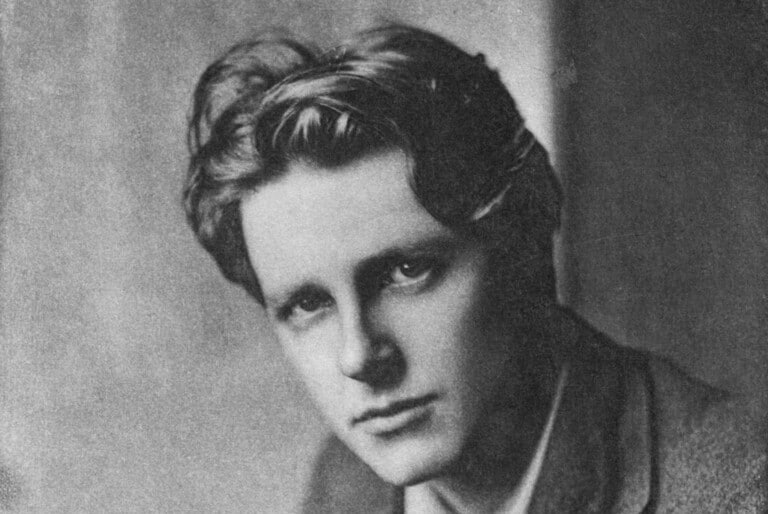Biography
Brooke’s poems were very famous and influential. His War Sonnets, published in 1915, caught very well the mood of the time.
He was born in 1887 in a very wealthy family and was educated at Rugby School and at King’s college, Cambridge.
He was said to be strikingly handsome and the unfair reasons why he was considered a popular war poet was because of both his 5 poems dealing with war and his appearance.
In fact, Brooke’s experience of war was very limited and he was not a war poet in the sense S. Sassoon was. Yet, he had a strong symbolic role: he was a great and beautiful warrior turned into a myth.
Speaking of Brooke, Yeats said he was “the most handsome man in Britain” and Frances Cornford that he was “a young Apollo, with golden hair”.
Churchill himself paid him an homage in 1926 in an article entitled “Obituary”: there is a strong emphasis on Brooke’s romantic death (he died of a fever in 1915) and the construction of the heroic figure. His early death was symbolic of the death of a whole generation of dedicated English youth.
Brooke’s poetry at once reflected the mood of the time. He became a hero for those who needed heroes and that is at the detriment of his poetry.
He was wrongly considered as a war poet: he was a leading figure of the Georgian Movement, a pre-war poet. The most famous poems from War Sonnets are “The Dead” and “The Soldier”.
“The Soldier”, tradition both in its sonnet form and its idealistic patriotic mood, represents the last significant expression of an attitude that could not survive the horrors of trench warfare.
His followers expressed bitterness, irony, a sense of disillusion, loss of values, and had a great literary influence in the postwar period.

